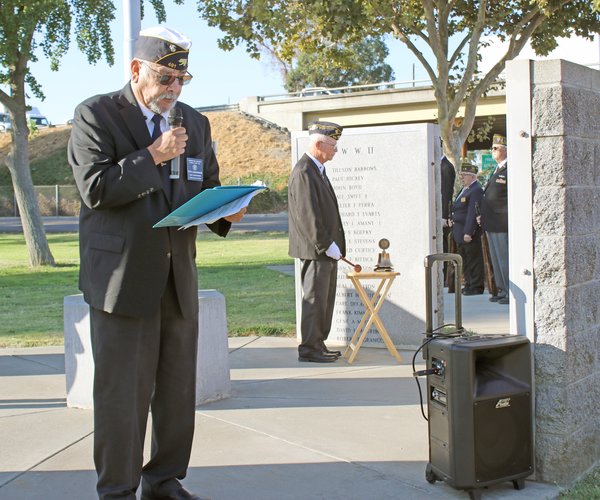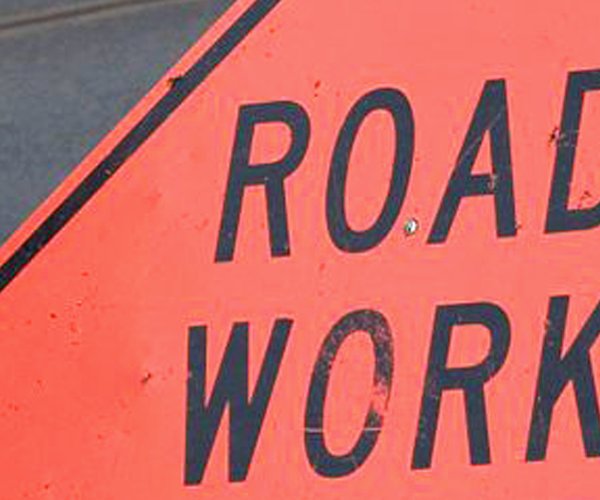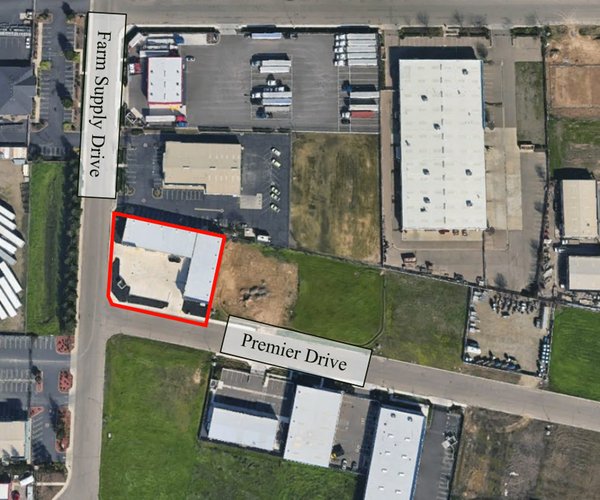While voters in 2018 approved a measure that allows the city to charge a tax rate as high as 15 percent on cannabis retailers, Ceres City Attorney Nubia Goldstein last week wanted council input on what they’d like to see incorporated into the city’s cannabis ordinance since no tax rate has been set.
The state already imposes a cannabis excise tax of 19 percent which some in the industry say is causing a rise in the black market.
Currently, the Ceres Municipal Code calls for any cannabis business wishing to operate in Ceres to sign a development agreement, essentially a contract with the city that spells out the obligations and duties and responsibilities, and pay a “public benefit” fee to the city to offset their impact to the community. The fee is not classified as a tax because in order to impose a tax, it must be voter approved, said Goldstein.
Most cities that allow cannabis dealers are charging fees based on gross receipts. Others are charging indoor cultivators based on a square footage of canopy basis. Some cities apply a tax or a combination of both.
She noted that common tax rates charged by neighboring cities charge four percent to eight percent; cultivation at two to five percent; one to five percent for distributors; two to five percent for manufacturing at 2 to 5; and the laboratory testing at zero to three percent.
Goldstein noted that there has been a “little bit of a downturn in terms of the (legal) cannabis market.”
“And so the question is, in setting your tax rates, what’s the sweet spot of administering the program at the staff level and enforcing it?,” said Goldstein. She noted that a higher tax burden on existing cannabis businesses could take the profitability out of legitimate businesses and profligate the black market with its lower prices. Goldstein also suggested that a lower tax rate would reduce revenue when cannabis businesses come in since they are likely to pay less money than they might otherwise under the city’s current fee structure. Lower taxes also “could potentially combat the black market” but there are no guarantees, she added.
“Some people might say that people will go to the lowest denominator and whatever is the cheapest, whether it’s legal or illegal, they’ll find a way to get their hands on the product.”
A sign that the fees being charged currently are too high is evident in the fact that most cannabis dealers have been in arrears in making payments to the city.
Goldstein also wants the council to think about the initial administrative workload increasing to administer a new tax.
“The hope would be that once a tax is in place and your city staff has the ability to create a workflow and a process that will replicate upon itself, that things will even out,” the city attorney said.
Goldstein also asked the council if it desires see a cap on the number of cannabis retail dealers in Ceres. She noted that neighboring communities have about one per 20,000 residents for retail, and one per 17,000 residents within the county. Currently Ceres has four retailers, or roughly one for 18,000 residents.
She also sought the council to determine what type of permitting process is needed if the city gets rid of development agreements and go with a cannabis sales tax instead of the monthly Public Benefit fee.
“In an ideal world, we’d get direction tonight on things that you want specific numbers and what you’d like to see,” Goldstein told the council.
Mike Warda spoke up and said the city needs to first resolve the problem of smoke shops selling cannabis since they are “essentially killing the legal market everywhere.”
He noted that only one legal cannabis store is making payments to the city and the others are by default in violation of their developer agreement.
Also speaking was Ron Roberts, former owner of Five Star Auto Sales, and now owner of Ceres’ first cannabis dispensary, Patient First Care (PFC) which has paid over $800,000 in fees every year since 2017.
“Every other cannabis venture that Ceres has attempted has failed,” Roberts told the council. “Two of the other three cannabis industry operators, from my understanding, have paid nothing in years. The only successful location has a low-cost, low-margin model.”
Roberts also stated that he has sent “the city evidence that 100% of the smoke shops in the city of Ceres paying no tax and all selling illegal cannabis for over four years. PCF the only successful business in the city of Ceres that operates with a low-cost margin is heavily dependent on that tax rate. If the tax rate is anything about four percent with redistribution, I can assure you, PCF will move in under 90 days out of the city of Ceres.”
Roberts stated that in the unincorporated area of Stanislaus County, all eight cannabis operators have failed.
“In the city of Modesto, five out of eight operations failed. Three of them are carrying the entire city of Modesto. When you look to the city of Turlock, 80 percent of its revenue comes from one operator. Their tax rate is five percent. The city of Oakdale had a tax rate of five percent; their operators didn’t pay, and they had to renegotiate with the cap. The city of Riverbank, the cap is under five percent, by the way. The city of Riverbank has a cap that is effectively lower than four percent. With the environment of the state charging a 19 percent excise tax, city of Ceres benefiting of an eight percent sales tax, again, anything above four percent and a zero distribution model will cause PCF – the only entity that’s paid the city of Ceres consistently – to leave by January 15 of 2026.”
Ceres resident John Warren suggested the city find a way to deal with cannabis businesses which fail to pay their fees to the city. Over $1 million in fees is due.
Councilman James Casey expressed his feelings against any cannabis dispensaries operating in Ceres.
Councilwoman Rosalinda Vierra asked Police Chief Trenton Johnson about the burdens on the police department. He said that “we don’t respond to very many calls for service there during business hours.” But he did mention an incident when several years ago 20 to 25 subjects rammed a car into the building at night when and tied up police resources during their getaway.
“That happens very seldom, but when it does happen, it does require a lot of work during the incident, and then the fall-up investigation is going to be a very time-consuming,” the chief said.
“I definitely don’t want to push it to the black market,” said Vierra. She added: “I think we need to be comparable to what our neighboring cities are” and saying adding more shops won’t help the existing dispensaries that are struggling.
“I can’t talk on the tax rates right now because I think we need to make sure they’re staying competitive, but they’re also paying because I think that’s key,” said Vierra. “And then we just want to make sure that we’re not pushing the sales into the black market because ultimately then there’s no oversight and we’re seeing other fentanyl related issues when it comes to that so then also brings a whole different safety concern to me.“
Councilwoman Cerina Otero also stated that the safety and security of cannabis businesses are important to her.
“The black market, I think is always going to be here,” said Otero. “The last thing I’d want to see is for our current businesses to go out of business because, you know, they can’t pay the tax. And I’m sure the state is always adding on new regulations and not giving them a chance to catch up. It’s nice to hear that the police department doesn’t seem to have to respond to very many calls for service during business hours, so that’s a positive and I’m sure that’s probably because they do have security guards outside.”
She also agreed that Ceres has enough cannabis retailers and “we don’t need to add anymore.”
Vice Mayor Daniel Martinez said he wanted to see a tax rate of around four percent on cannabis retailers.
“I would suggest going with the square footage for the growers instead of a tax percentage, and then I would also think maybe one percent on the laboratory tax rate,” Martinez said. “The labs don’t have much of an income; it’s going to be a flat rate to test that.”
Martinez also would like the city to keep either the developer agreement structure or conditional permit use permit process of permitting cannabis retailers.
“I wouldn’t mind capping it at four – I know that currently we’re at two for retail,” said Martinez. “Four would bring us down to one to every 12,000 is what that number looked like.”
Martinez praised Roberts’ Patient Care First dispensary on Angie Avenue for the great security and lack of problems.
Mayor Javier Lopez voiced a preference to see a four percent tax rate for retailers but smaller tax rates on manufacturing, distribution and testing. He expressed desire to keep the number of dispensaries at two. Otero and Vierra also suggested a cap of two cannabis retailers.
The mayor suggested two options for cannabis businesses – keeping developer agreements or have the ability to pay taxes instead of the fees.
“The development agreement structure gives you flexibility to establish a tax rate,” said Goldstein, who also suggested cleaning up the city’s cannabis program, making sure that it’s more robust in terms of the enforcement in making payments and holding businesses to their responsibilities.
“Depending on your tax rate, there may be requests from operators to renegotiate their DAs,” the attorney said. “It would be at their selection under their DA to request renegotiation if they feel that maybe from their perspective, it’s more advantageous to transition to the tax sooner and rather than later.”
Goldstein recapped, saying she understood the council wants to set a tiered tax structure of potentially four percent for retailers, three percent for manufacturing, cultivation based on square footage, two percent for distribution and one percent for lab testing facilities.
Councilwoman Vierra expressed the city to press cannabis businesses to pay their fees owed to the city and perhaps add a financial penalty. She also said if the developer agreement is not being met “you’re not getting renewed … then maybe we need to look at a different retailer that’s willing to stay in compliance and making sure they’re doing a due diligence and doing what they need to do for the residents of Ceres.”
Upon council direction, Goldstein will draw up ordinance changes that would beef up enforcement requirements, instituting clearer auditing, and background check requirements in the ordinance. Goldstein said the matter could return for an ordinance approval in October or November.
In the final moments of discussion, Goldstein suggested that the benefit of a development agreement is if a company is in breach of their contract and doesn’t fix it within a certain time frame, then the city can sue them.
“The CUP works like a belt and suspenders framework. The CUP from a land use perspective gives you that ability specifically because reviewing the CUP, if they’re not meeting their requirements, the CUP can be modified, you can make requirements more stringent. So there is, I would say more enforceability through a development agreement and the CUP structure than just a permit structure.”





